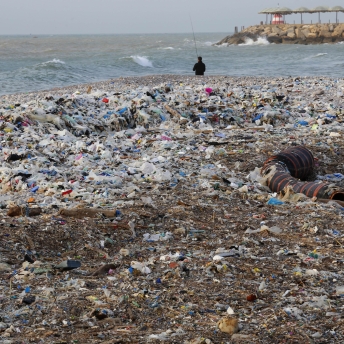Yves Takchi
Principal
Circular Economy and Waste Management Guru

Areas of Focus

Yves is a Principal based in the Middle East and is a member of the global ENUT (Energy and Utilities) Practice.
Yves’ experience covers complex strategic planning, public policy definition, organization restructuring, operating model design, and innovation management for governments and corporate players.
Within the ENUT practice, Yves is a key member of our “Waste and Water” competence center, and he regularly contributes to our thought leadership on Sustainability, Technology Foresight and RDI strategy topics.
Throughout his career, Yves has built cross-industry experience in leading multifaceted engagements that require combined strategic thinking, in-depth technical understanding, and stakeholder management; and he is passionate about bringing maximum value to his clients and society at large.
Yves holds a Bachelor of Engineering in Electrical and Computer Engineering from the American University of Beirut, and is fluent in Arabic, French and English.
Apart from his professional life, Yves is a devoted scuba diver and secretly wishes all meetings could be held underwater.

Technology foresight: anticipating future impact


The National Innovation Ecosystem

The Lebanon municipal solid waste crisis

Yves is a Principal based in the Middle East and is a member of the global ENUT (Energy and Utilities) Practice.
Yves’ experience covers complex strategic planning, public policy definition, organization restructuring, operating model design, and innovation management for governments and corporate players.
Within the ENUT practice, Yves is a key member of our “Waste and Water” competence center, and he regularly contributes to our thought leadership on Sustainability, Technology Foresight and RDI strategy topics.
Throughout his career, Yves has built cross-industry experience in leading multifaceted engagements that require combined strategic thinking, in-depth technical understanding, and stakeholder management; and he is passionate about bringing maximum value to his clients and society at large.
Yves holds a Bachelor of Engineering in Electrical and Computer Engineering from the American University of Beirut, and is fluent in Arabic, French and English.
Apart from his professional life, Yves is a devoted scuba diver and secretly wishes all meetings could be held underwater.

Technology foresight: anticipating future impact


The National Innovation Ecosystem

